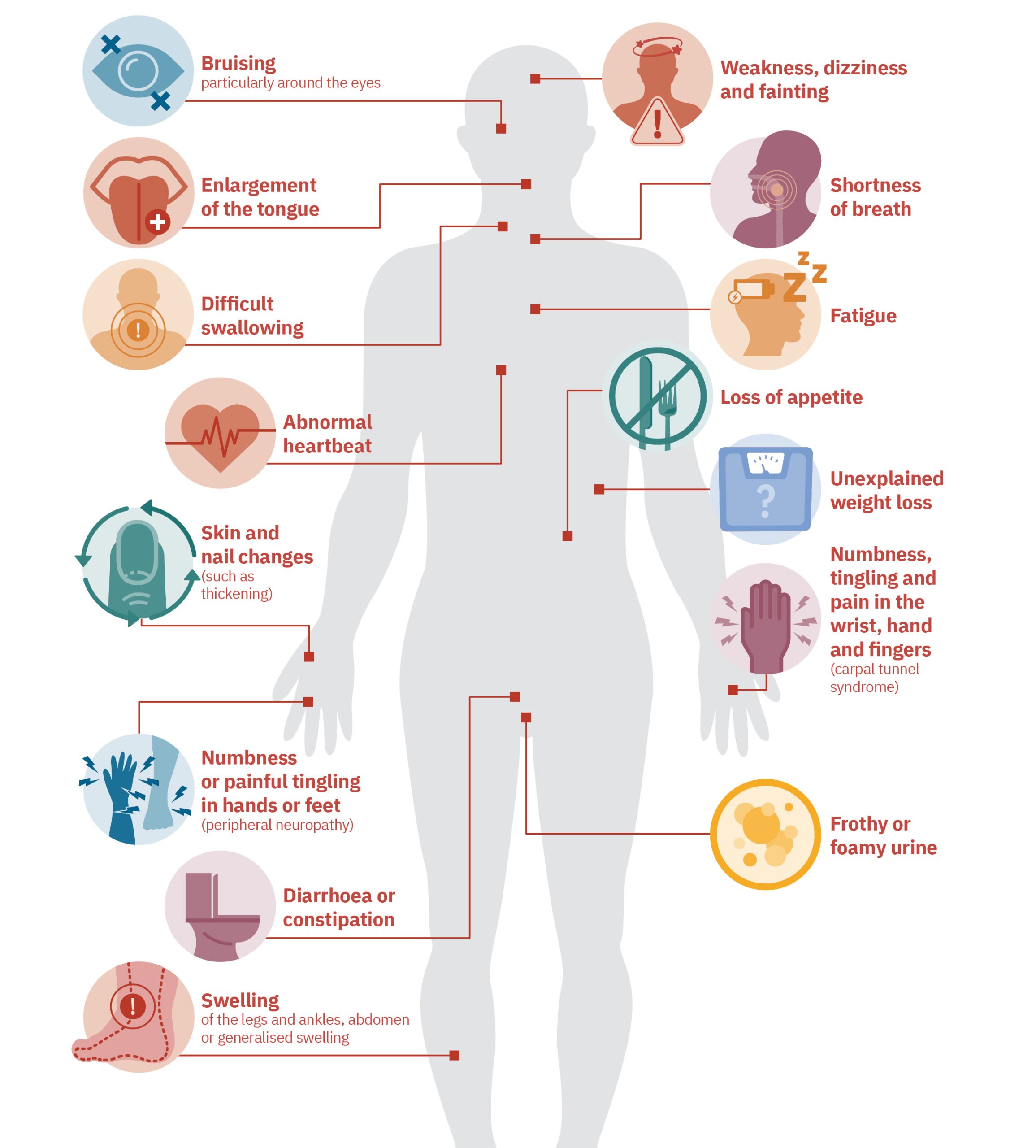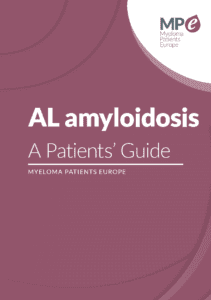Symptoms
Heart:
- Shortness of breath: You may experience a tight sensation in the chest and feel the need to breathe more or quicker than usual, especially at exercise such as climbing stairs.
- Palpitations (arrhythmias): Palpitations are feelings or sensations that the heart is racing or pounding. You may experience an unpleasant awareness of your own heartbeat or may feel like your heart skips some beats. You may feel a pounding sensation in the chest, throat, or neck.
- Chest pain: Pain can be experienced as dull, sharp, burning, aching or stabbing
- Fatigue: You may tire easily, even from day-to-day activities that normally would not tire you out.
- Light-headedness: You may feel dizzy or have the feeling that you might faint, especially when standing up.
Lungs
- Noisy, wheezing, troublesome or uncomfortable.
- Cough.
Gastro-intestinal tract (mouth, oesophagus, stomach, small intestine, large intestine and anus)
- Poor appetite: You might experience a loss of appetite and struggle to consume enough food.
- Bloating or excessive gas: Symptoms of this include frequent burping and passing of gas, abdominal pain, pressure, or cramps. A feeling of fullness and a visible increase in the size of the abdomen can also be experienced.
- Constipation or diarrhoea: Stools may become loose or bowel movements may decrease.
Nervous system
- Carpal tunnel syndrome (or median nerve compression): This is a condition characterised by numbness, tingling, or weakness in the hand. It is caused by pressure on the median nerve, which is found in the arm and hand, and passes through the wrist inside the carpal tunnel.
- Peripheral neuropathy: This is experienced when damage occurs to the nerves located outside of the brain and spinal cord. It is usually felt as numbness, burning and/or tingling in the hands or feet.
- Autonomous neuropathy: low blood pressure when standing up, difficulty swallowing, difficulty urinating.
- Muscle weakness: Muscle weakness is especially common in the legs.
Liver
- Enlarged liver (hepatomegaly): This means that the liver is swollen to a larger size than usual.
Kidney
- Excessive bubbles in the urine: Your urine may become foamy, which can be a sign of protein in the urine; this can indicate kidney abnormalities.
- Decreased urination: You may urinate less than normal.
- Nocturia: You may feel the need to get up at night to urinate.
Other symptoms
- Brittle nails: Fingernails and toenails may become weaker and break more easily.
- Oedema: Your feet or legs may become visibly swollen.
- Bruising or bleeding easily.
- Purple colour in skin folds.
- Periorbital purpura: The eyelids and/or around the eyes may become purple in colour.
- Macroglossia: Your tongue can become enlarged, if the disease affects the oral tissues.
- Painfull joints.
Subscribe to
our newsletter!



